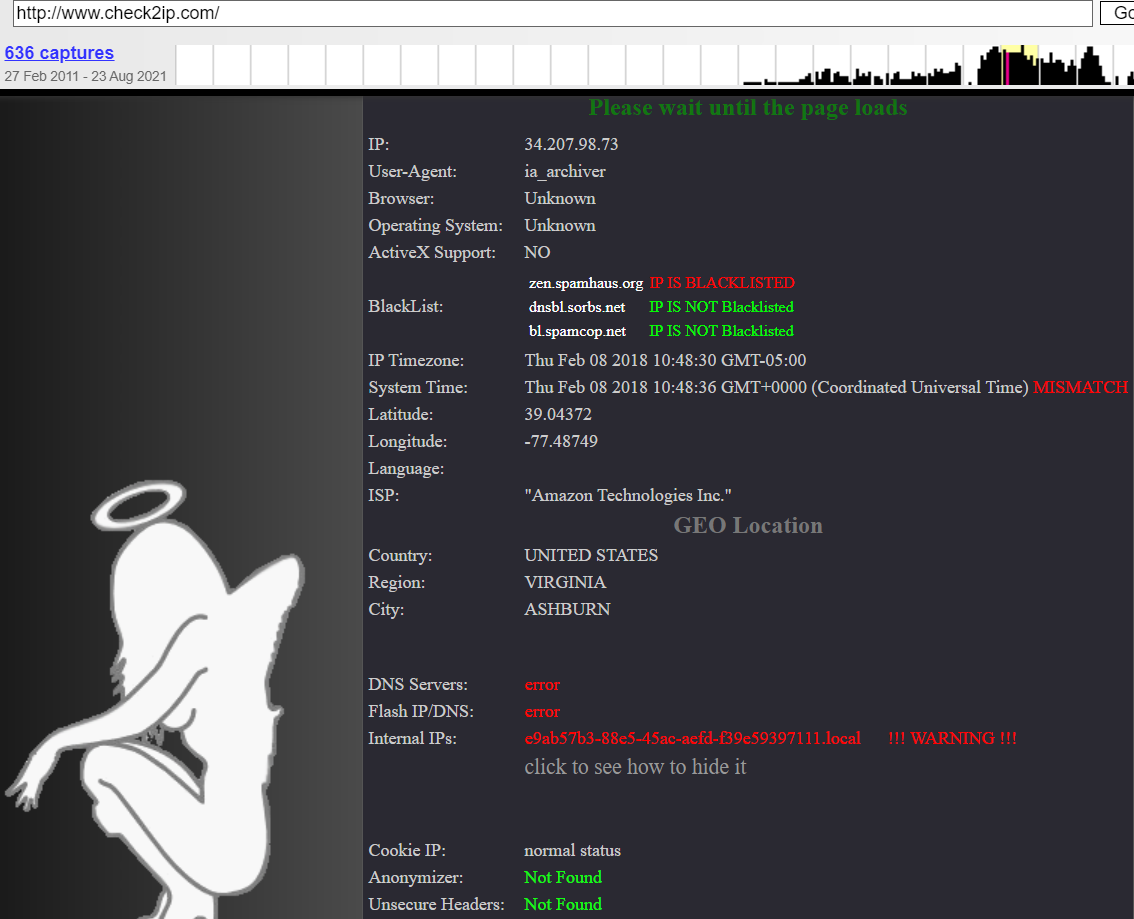15-Year-Old Malware Proxy Network VIP72 Goes Dark
September 1 2021Over the past 15 years, a cybercrime anonymity service known as VIP72 has enabled countless fraudsters to mask their true location online by routing their traffic through millions of malware-infected systems. But roughly two weeks ago, VIP72’s online storefront — which ironically enough has remained at the same U.S.-based Internet address for more than a decade — simply vanished.

Like other anonymity networks marketed largely on cybercrime forums online, VIP72 routes its customers’ traffic through computers that have been hacked and seeded with malicious software. Using services like VIP72, customers can select network nodes in virtually any country, and relay their traffic while hiding behind some unwitting victim’s Internet address.
The domain Vip72[.]org was originally registered in 2006 to “Corpse,” the handle adopted by a Russian-speaking hacker who gained infamy several years prior for creating and selling an extremely sophisticated online banking trojan called A311 Death, a.k.a. “Haxdoor,” and “Nuclear Grabber.” Haxdoor was way ahead of its time in many respects, and it was used in multiple million-dollar cyberheists long before multi million-dollar cyberheists became daily front page news.

An ad circa 2005 for A311 Death, a powerful banking trojan authored by “Corpse,” the administrator of the early Russian hacking clique Prodexteam. Image: Google Translate via Archive.org.
Between 2003 and 2006, Corpse focused on selling and supporting his Haxdoor malware. Emerging in 2006, VIP72 was clearly one of his side hustles that turned into a reliable moneymaker for many years to come. And it stands to reason that VIP72 was launched with the help of systems already infected with Corpse’s trojan malware.
The first mention of VIP72 in the cybercrime underground came in 2006 when someone using the handle “Revive” advertised the service on Exploit, a Russian language hacking forum. Revive established a sales presence for VIP72 on multiple other forums, and the contact details and messages shared privately by that user with other forum members show Corpse and Revive are one and the same.
When asked in 2006 whether the software that powered VIP72 was based on his Corpse software, Revive replied that “it works on the new Corpse software, specially written for our service.”
One denizen of a Russian language crime forum who complained about the unexplained closure of VIP72 last month said they noticed a change in the site’s domain name infrastructure just prior to the service’s disappearance. But that claim could not be verified, as there simply are no signs that any of that infrastructure changed prior to VIP72’s demise.
In fact, until mid-August VIP72’s main home page and supporting infrastructure had remained at the same U.S.-based Internet address for more than a decade — a remarkable achievement for such a high-profile cybercrime service.
Cybercrime forums in multiple languages are littered with tutorials about how to use VIP72 to hide one’s location while engaging in financial fraud. From examining some of those tutorials, it is clear that VIP72 is quite popular among cybercriminals who engage in “credential stuffing” — taking lists of usernames and passwords stolen from one site and testing how many of those credentials work at other sites.
Corpse/Revive also long operated an extremely popular service called check2ip[.]com, which promised customers the ability to quickly tell whether a given Internet address is flagged by any security companies as malicious or spammy.
Hosted on the same Internet address as VIP72 for the past decade until mid-August 2021, Check2IP also advertised the ability to let customers detect “DNS leaks,” instances where configuration errors can expose the true Internet address of hidden cybercrime infrastructure and services online.
Check2IP is so popular that it has become a verbal shorthand for basic due diligence in certain cybercrime communities. Also, Check2IP has been incorporated into a variety of cybercrime services online — but especially those involved in mass-mailing malicious and phishous email messages.

Check2IP, an IP reputation service that told visitors whether their Internet address was flagged in any spam or malware block lists.
It remains unclear what happened to VIP72; users report that the anonymity network is still functioning even though the service’s website has been gone for two weeks. That makes sense since the infected systems that get resold through VIP72 are still infected and will happily continue to forward traffic so long as they remain infected. Perhaps the domain was seized in a law enforcement operation.
But it could be that the service simply decided to stop accepting new customers because it had trouble competing with an influx of newer, more sophisticated criminal proxy services, as well as with the rise of “bulletproof” residential proxy networks. For most of its existence until recently, VIP72 normally had several hundred thousand compromised systems available for rent. By the time its website vanished last month — that number had dwindled to fewer than 25,000 systems globally.




